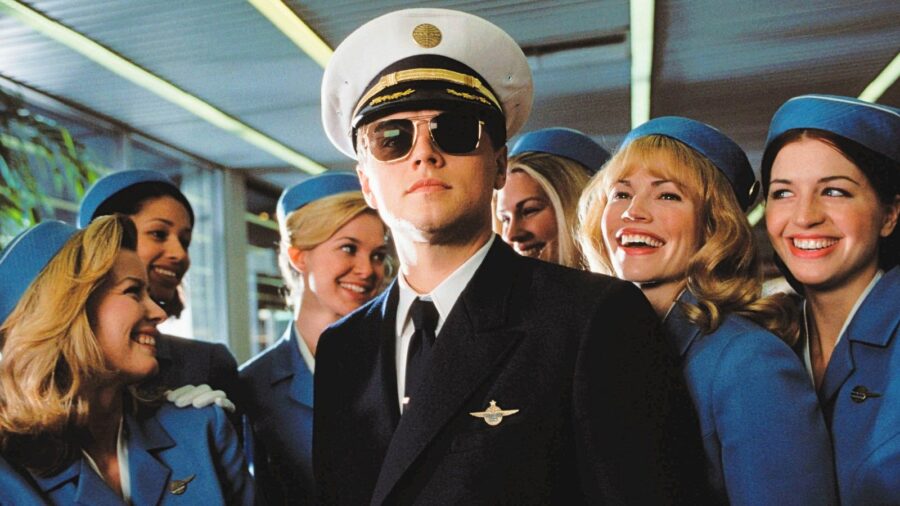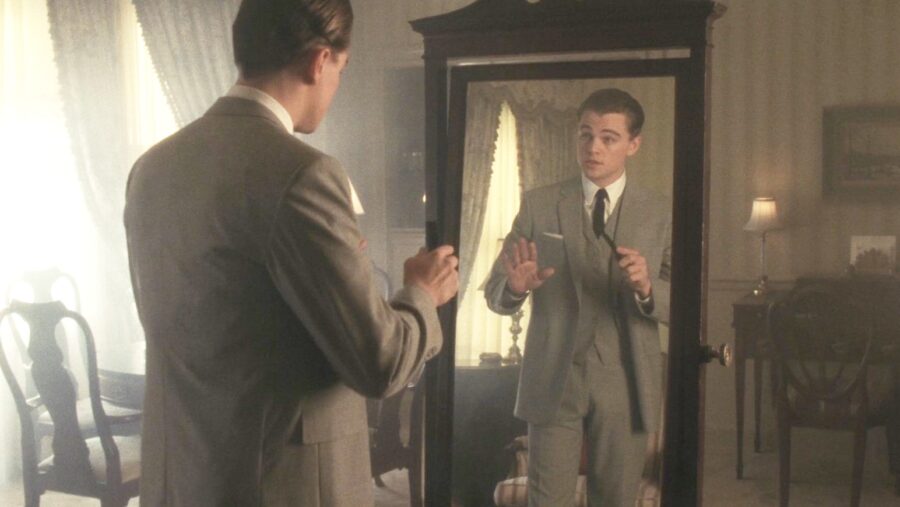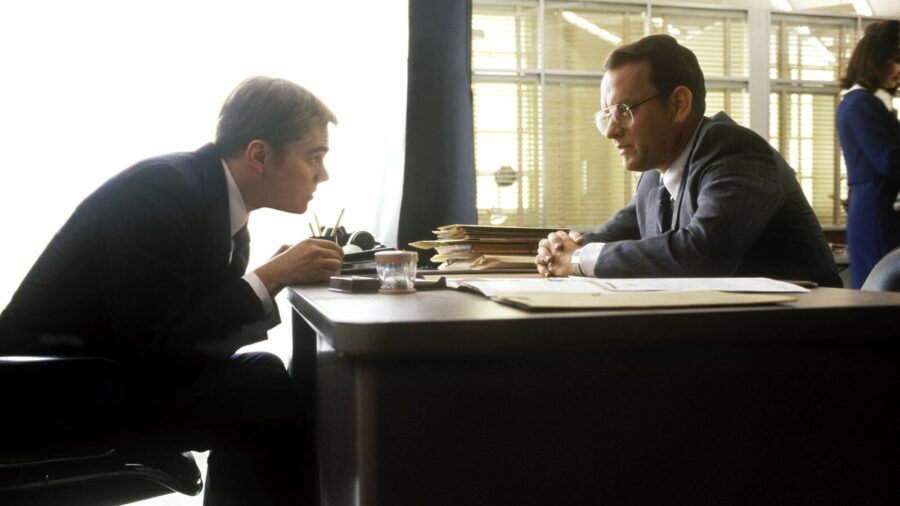Leonardo DiCaprio’s Career Breakthrough Is Leaving Netflix
Leonardo DiCaprio's Catch Me If You Can is leaving Netflix at the end of September.
At long last, Leonardo DiCaprio is a respected actor. The trajectory of his career has always been upward, beginning as a promising child sitcom actor in shows like Growing Pains to a youthful prodigy matching Robert De Niro and Johnny Depp blow for blow in This Boy’s Life and What’s Eating Gilbert Grape to the king of the world in Titanic. But once Leonardo DiCaprio became the world’s preeminent cinematic heartthrob, his career looked shaky for a moment until one movie became his lifeline: 2002’s Catch Me If You Can, which is set to leave Netflix at the end of September.

Catch Me If You Can stars Leonardo DiCaprio as real-life reformed felon and con artist Frank Abagnale and Tom Hanks as Carl Hanratty, a fictionalized FBI agent who makes it his own personal issue to capture him. The movie opens with Tom Hanks moving in on Leonardo DiCaprio in France, where the latter has been apprehended and seems deathly ill, which Hank’s bespectacled G-man treats as another ploy in a long line of them. This is perhaps the first appearance on-screen of Leonardo DiCaprio as a filthy, ragged-looking version of himself with a scraggly beard and long hair, something he will return to in future films as evidence of now being a “serious actor.”
In many ways, Catch Me If You Can is the definitive bridge between the two main portions of Leonard DiCaprio’s career: the explosion to fame with Titanic and his follow-ups like The Man in the Iron Mask and The Beach and his current career as an acclaimed actor known for intense, physically performative roles. You can practically see then-28 Leonard DiCaprio transforming from the most beautiful male actor of his generation into the actor known for getting an Academy Award in the category of Most Attacked by a Bear.

There is a nearly a meta element to Catch Me If You Can, despite its loose non-fiction roots, in that it follows a young and beautiful man taking on fictional personas for respect, affection, and money (aka “acting”), then finding himself ultimately unsatisfied with the shiny shallowness of his life and looking for something more.
However, there is a lot more to Catch Me If You Can than Leonardo DiCaprio charming his way through check fraud and using the name “Barry Allen” as a cover. Tom Hanks was just coming off his second Oscar win, this time for losing a bunch of weight, and growing scraggly hair and a beard for Cast Away, which might have made an impression on his younger co-star. It is also a transitory film for Tom Hanks, who had definitively left behind his past persona as a glib young everyman and was beginning to specialize in roles as a mature everyman who happened to be a world-class expert in some specific subject.

Catch Me If You Can was Tom Hanks’ second movie with Steven Spielberg (and the director’s only collaboration with Leonardo DiCaprio to date), who added a thematic element that has run through his entire career: how hard it is for a young man in the 1960s to see his parents get divorced. The movie is a wonderful example of John Ford’s maxim “When the legend becomes fact, print the legend,” so it makes sense that Spielberg would find a way to work his own recurring emotional images and issues into the film. It is hard to fault him, especially when the resulting work is one of the swiftest-moving, funniest movies of Spielberg’s career.
The real Frank Abagnale’s career as a criminal (and later, a guest speaker and self-proclaimed fraud expert) has been thoroughly examined and mostly debunked as an exaggeration. However, that the real man and Leonardo DiCaprio’s character do not have much in common is not a blow against the film. Instead, that Leonardo DiCaprio, Tom Hanks, and Steven Spielberg can create what feels like an authentic, emotional story out of scraps of truth is just that much more important.
After Catch Me If You Can, Leonardo DiCaprio’s roles would get increasingly darker, with movies like the Howard Hughes biopic The Aviator, the dark satire The Wolf of Wall Street, and Once Upon a Time in Hollywood all putting him in the role of deeply flawed, strangely pathetic, yet charismatic and successful men. In a way, it all started here.












